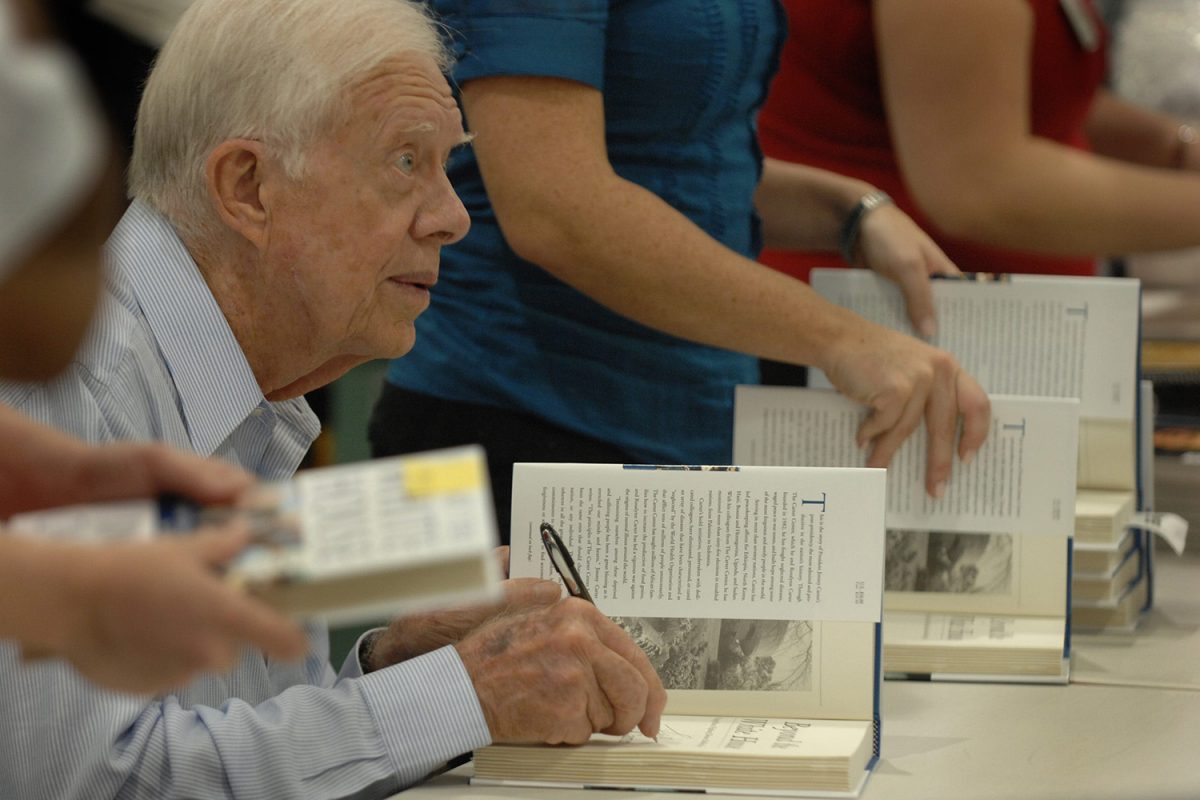Last week on Oct. 1, former President Jimmy Carter turned 100.
The one-term president is often forgotten, remembered mainly for being the oldest and only U.S. president to become a centenarian.
But Carter’s presidency was more significant to Iowa and the nation than many recognize. In celebration of his 100th birthday, I seek to defend his presidency as one of the most important of the last century.
Carter’s run for president was marked by the scandals that rocked Washington in the early 1970s. Richard Nixon resigned after the Watergate scandal, and his vice president, Gerald Ford, took office.
Ford, the only president never elected as president or vice president, was tasked with leading a country that no longer trusted the presidency. This is where Carter steps in, offering a stark contrast to much of Washington at the time.
The one-term governor of Georgia and peanut farmer ran as an outsider and leveraged that image in the Iowa caucuses. Carter pitched his farm roots and was the first candidate to use the Iowa caucus to gain national publicity.
Many candidates after Carter have adopted this strategy of targeting an early win in Iowa to give their campaigns a media boost. Our state owes its tradition of being a hotbed for political candidates during election years, in part, to Carter’s strategy.
Once president, a major focus of Carter’s administration was peace. One of the most famous achievements of his presidency was the Camp David Accords. The Accords led to a peace agreement and recognition between Egypt and Israel, with all sides crediting Carter as crucial in securing the deal.
Carter also led negotiations to return the Panama Canal to Panama, ending a long-standing quasi-colonial relationship and improving diplomatic ties between the two nations.
Domestically, Carter is often overlooked. He was the first president to meet with gay rights groups, helped establish the Department of Education, and signed legislation to fund mental health initiatives.
The Carter administration did suffer from two challenges: the economy and the Iran hostage crisis. While these were low points of his presidency, Carter handled them better than many believe.
The economic crisis that overshadowed his presidency led to two major initiatives: the creation of the Department of Energy and the Camp David Accords. Carter also took steps to reduce the national debt, which grew substantially under his successor, Ronald Reagan.
The Iran hostage crisis was, in part, a blow aimed at Carter. The Iranian Revolution overthrew the U.S.-backed Shah, who had maintained power due to a coup supported by the Eisenhower administration. After the revolution, American hostages were taken to undermine Carter’s re-election campaign.
While Jimmy Carter may be overlooked among recent presidents, his 100th birthday offers an opportunity to reflect on his significant accomplishments.



